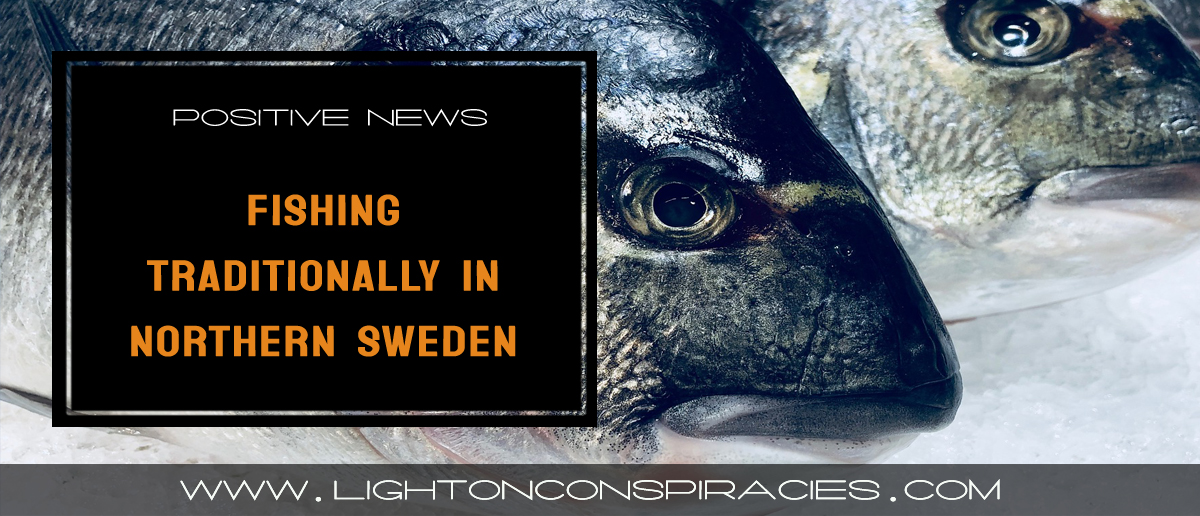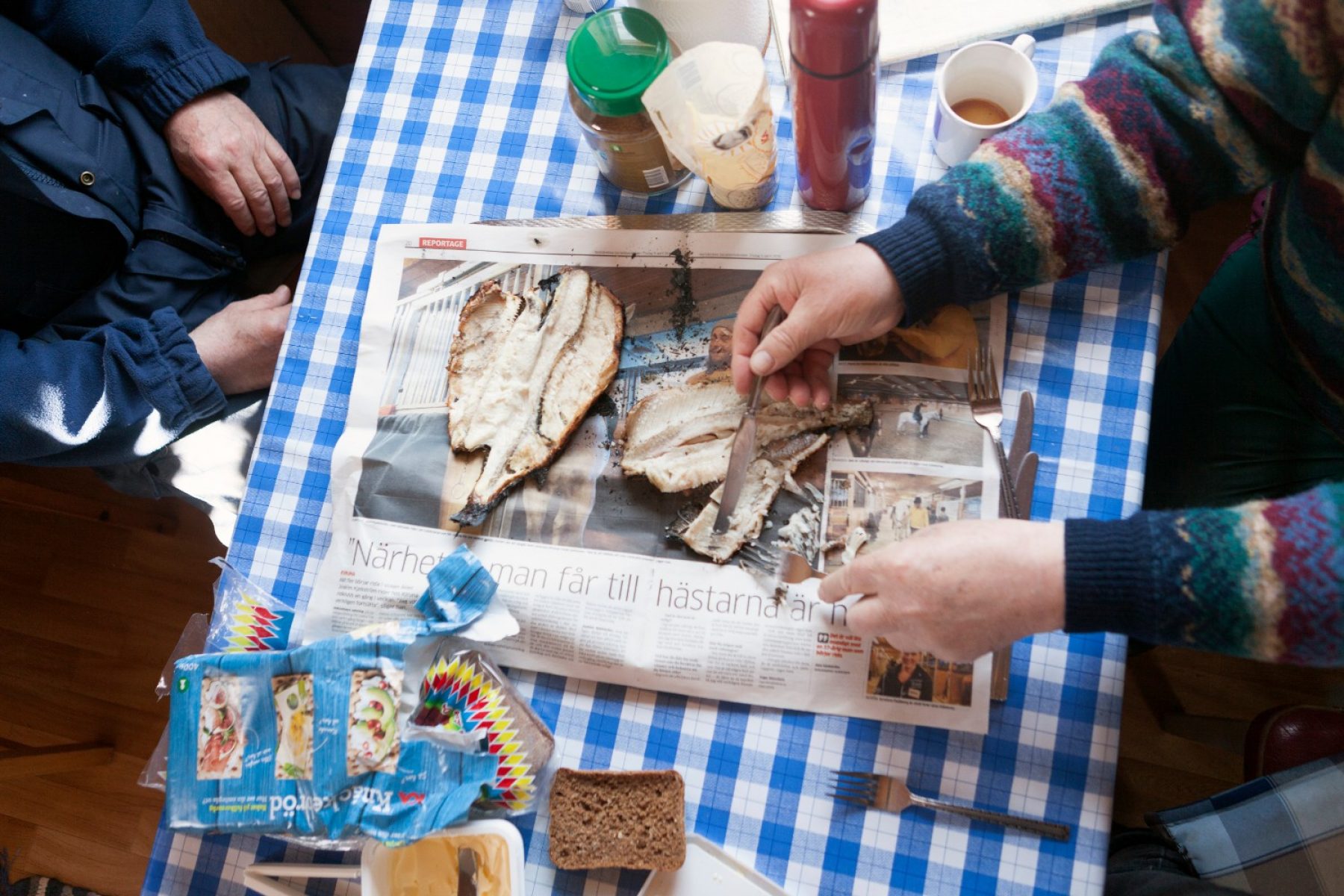
EU legislation threatens to ban the traditional method of fishing in shallow waters in northern Sweden. Locals are fighting back
People, not production lines. Farms, not factories. Agriculture, not agri-business. From ice covered northern Sweden to the depths of the Amazon rainforest, the following stories tell of the men, women and families who supply 70 per cent of the world’s food. They challenge the myth that we need industrial agriculture to feed an increasing population. Could small-scale farming offer solutions to the planetary crises we face – from climate disruption to species mass extinction?
Reproduced from We Feed the World, an exhibition by the Gaia Foundation.
Joachim Bostrom and his friends have fished the inlets around their villages in northern Sweden since they were boys. Fishing has been a way of life, a source of food and a means of income here for generations.
But, Bostrom’s generation could be the last to pass on this knowledge to their children, as new EU legislation has placed a ban on all fishing in shallow waters. They want the authorities to recognise their ability to steward nature and maintain the fish supplies, based on local indigenous knowledge that goes back to the 14th century. The challenge for these villagers is to translate their local language, which has rarely been written down, into a form that can be understood and considered by government officials many miles away.
All the place names here are connected to nature, often describing what grows there. Swedish has one word for ice; the people here have at least seven, depending on its quality.
In photos: fishing traditionally in Sweden
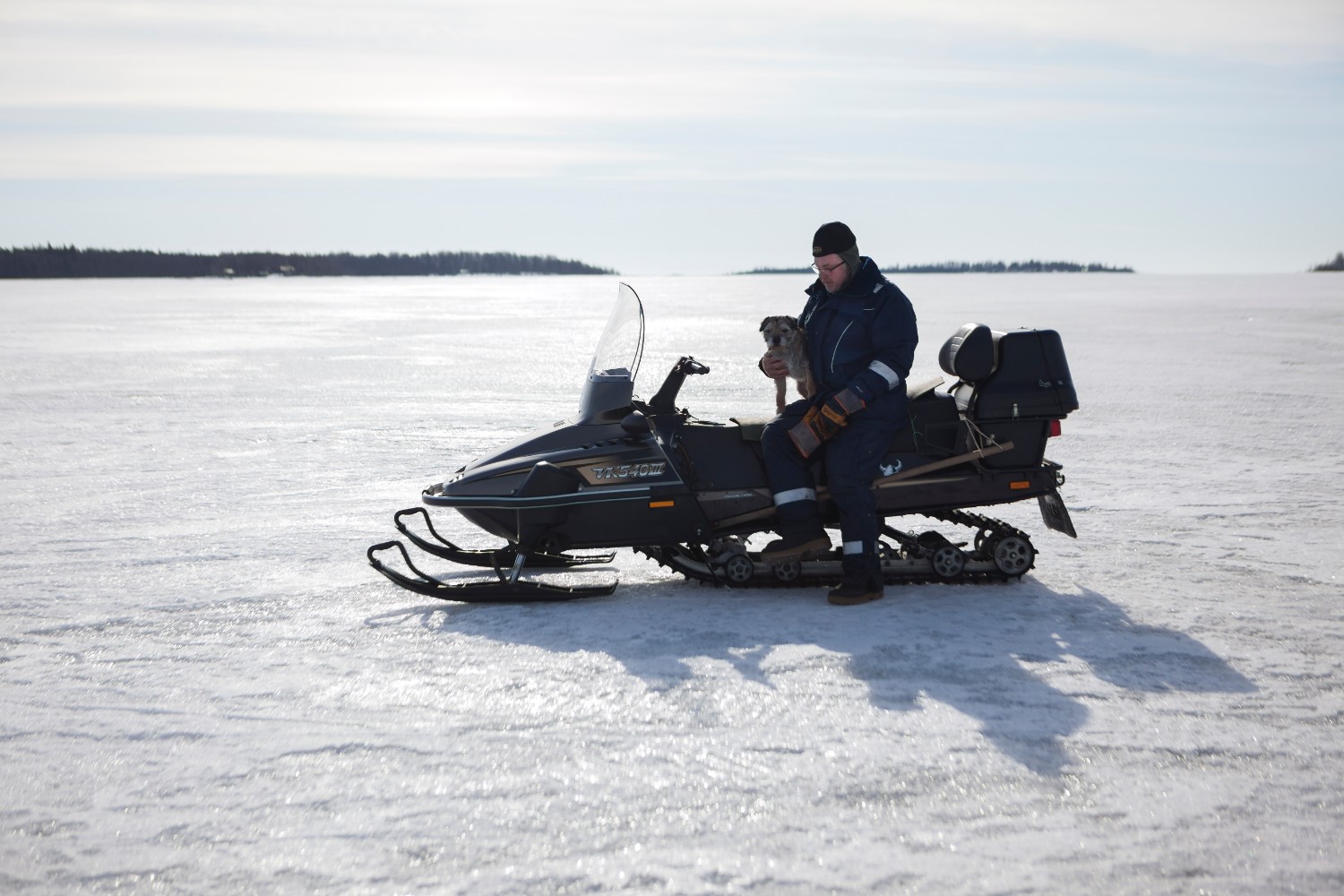
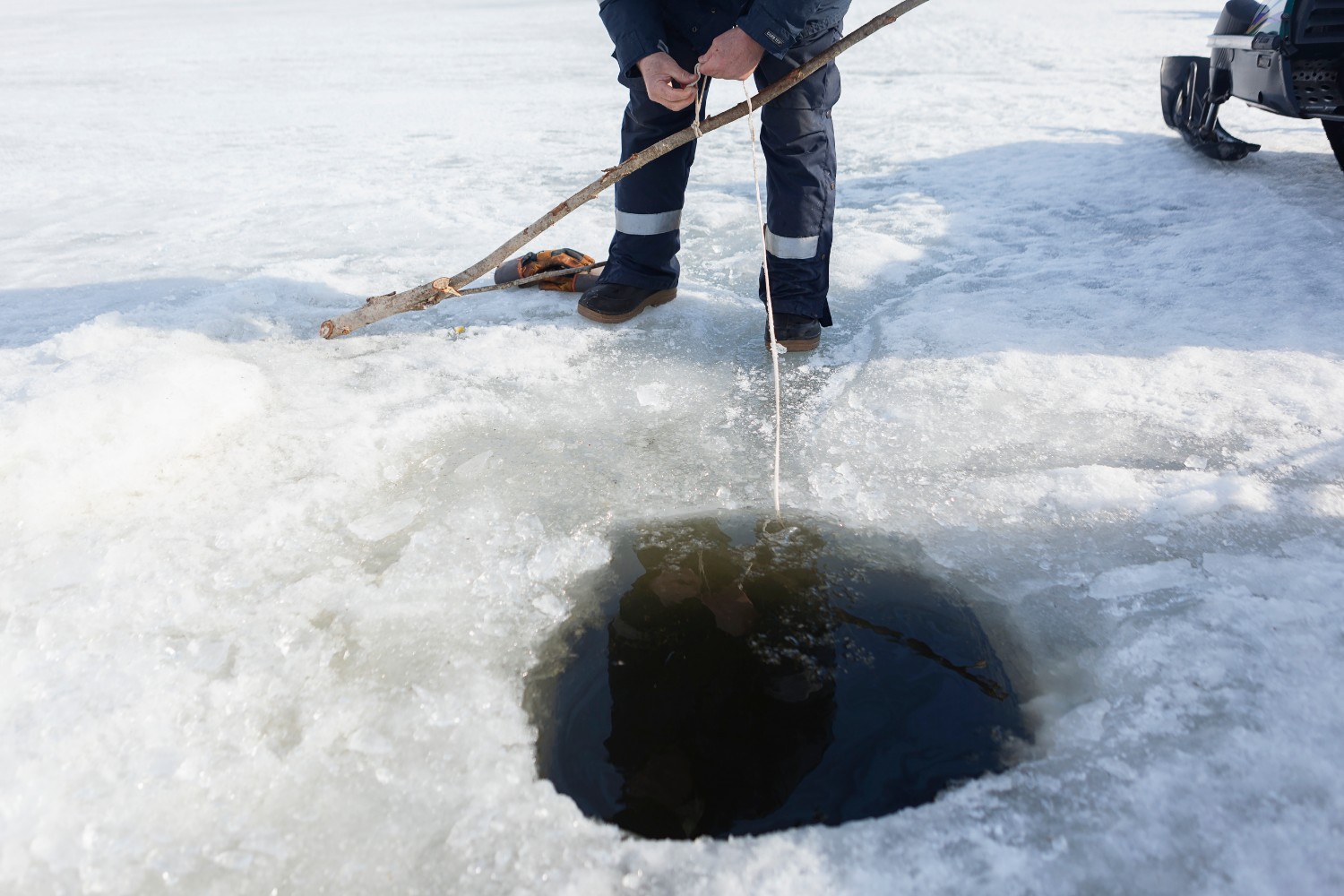
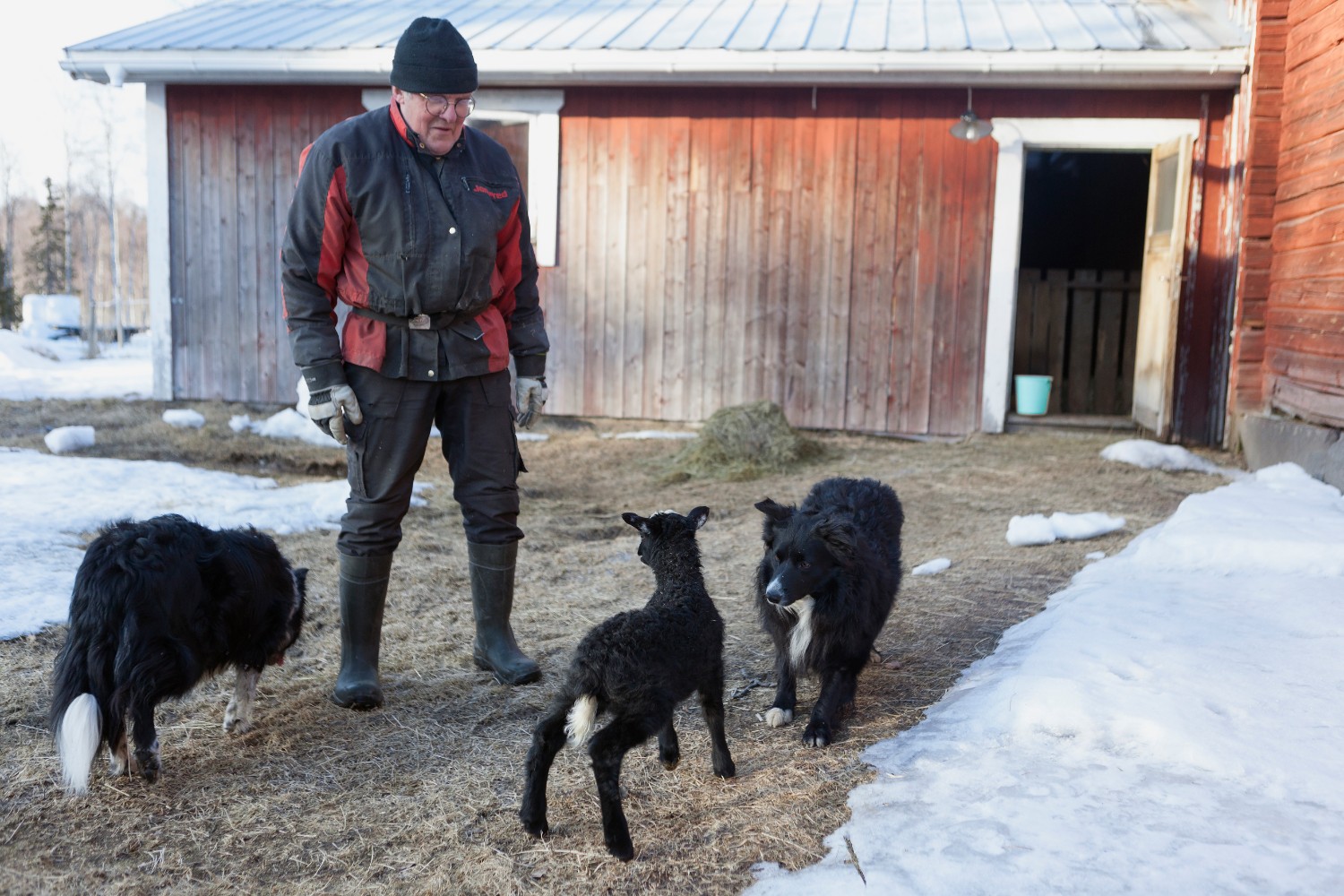
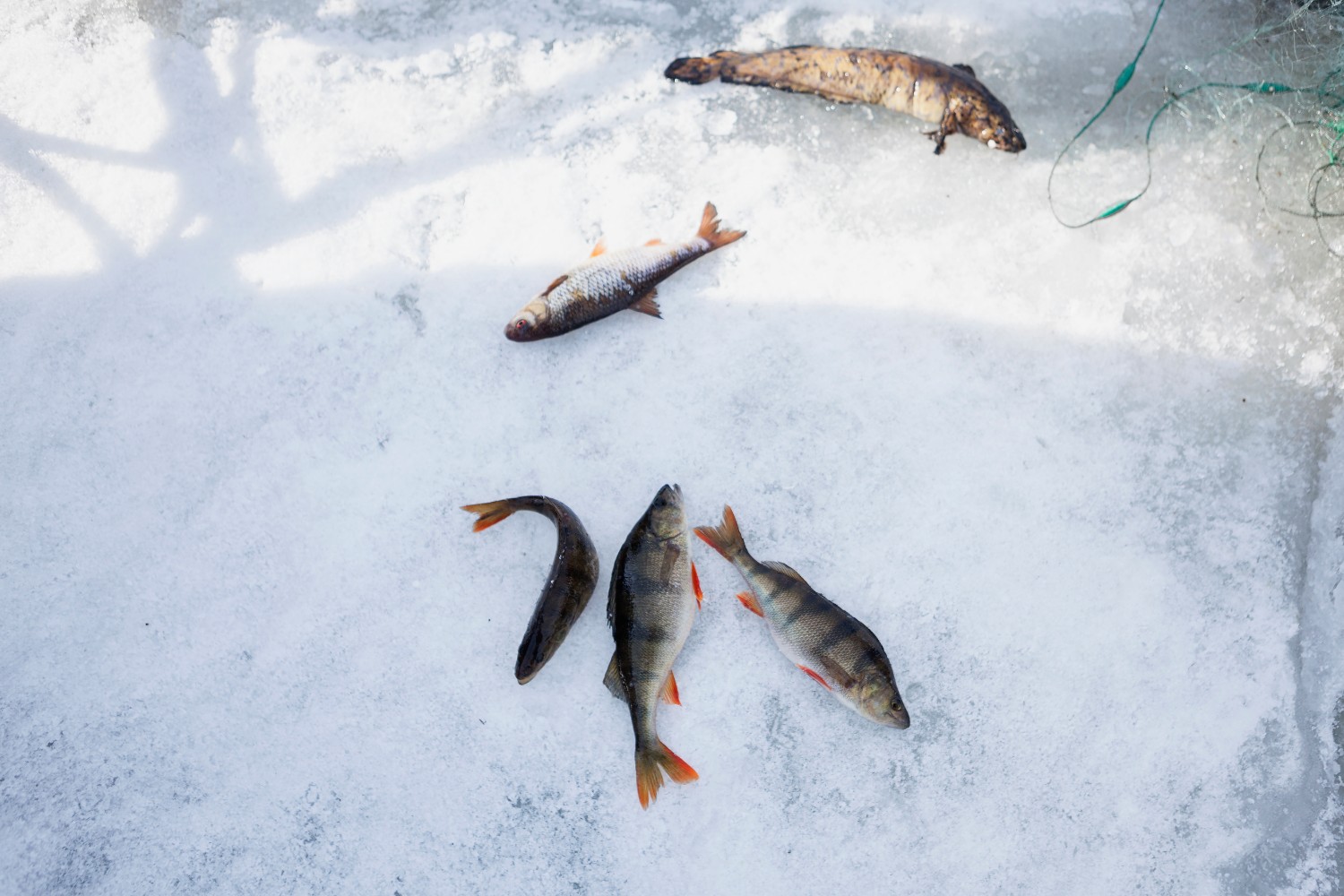
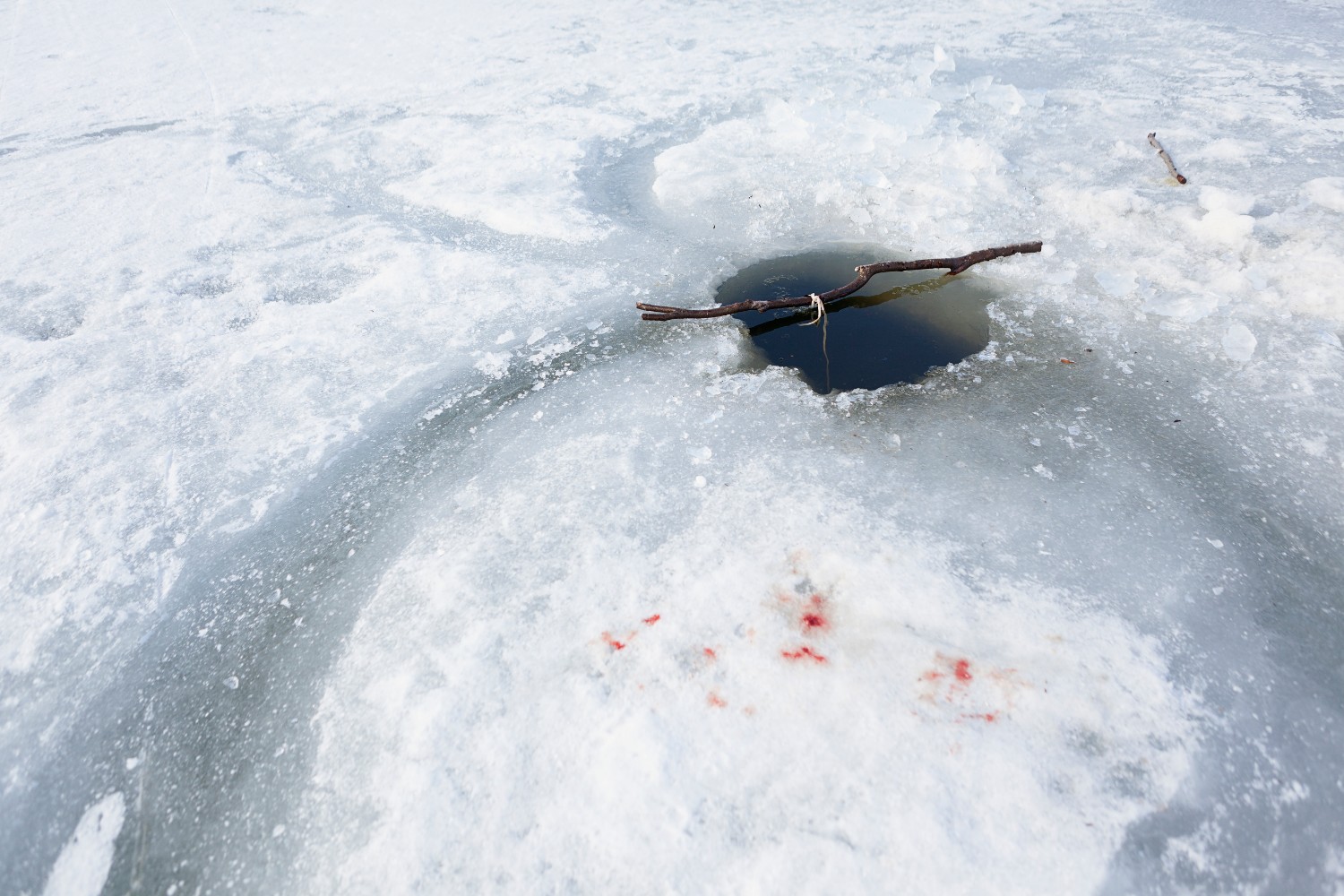
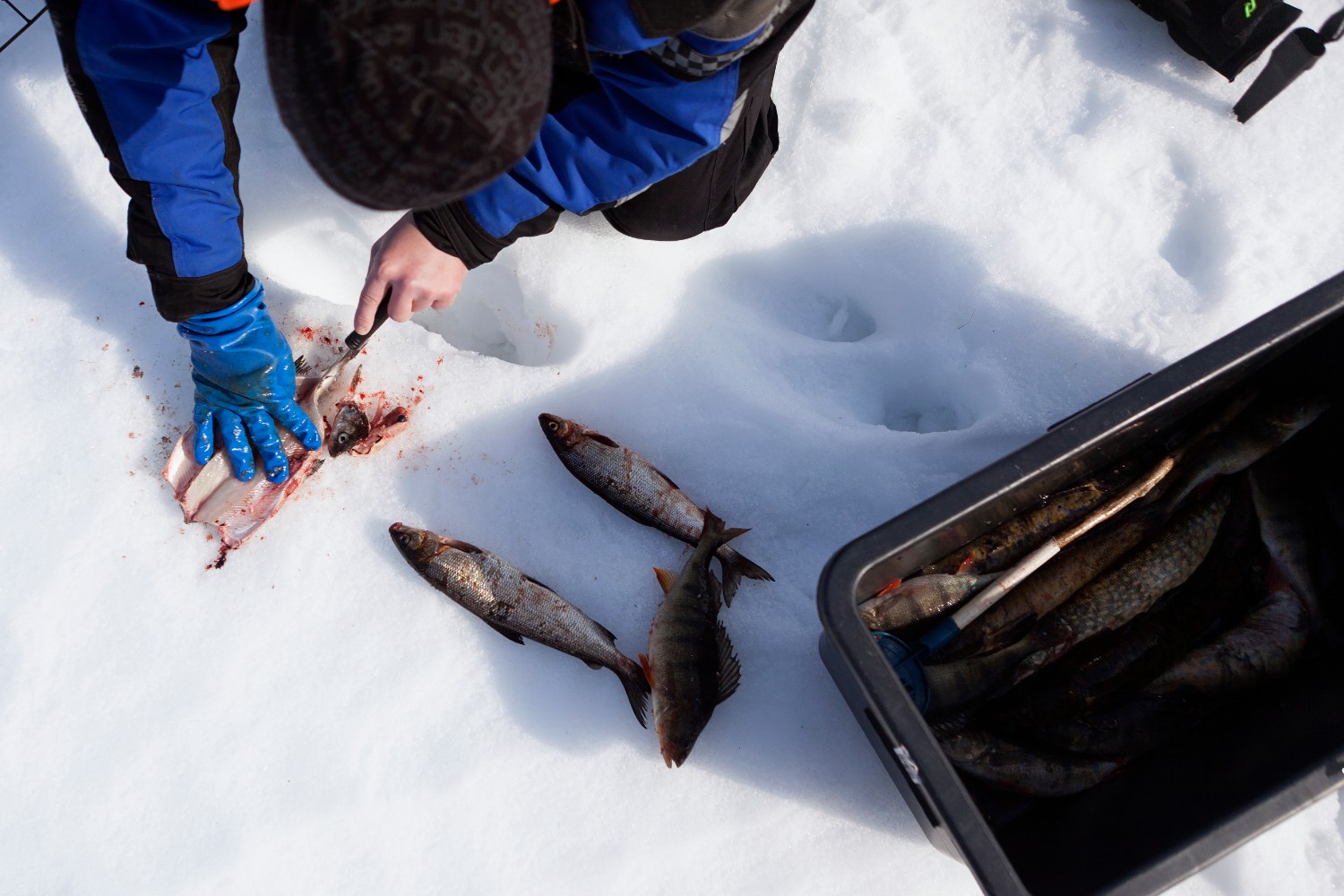
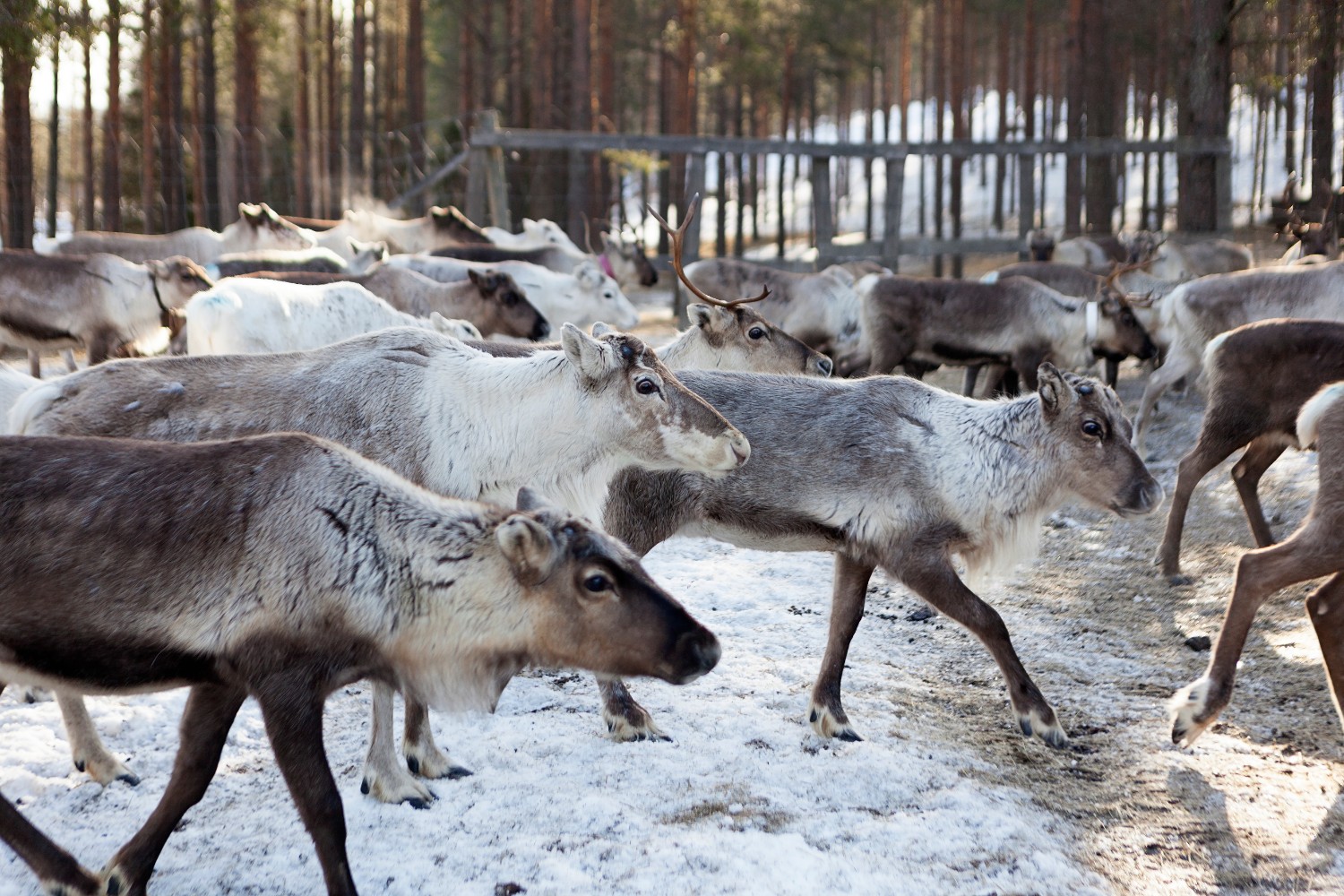
Photography by Clare Benson





